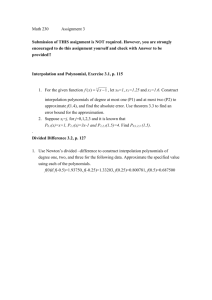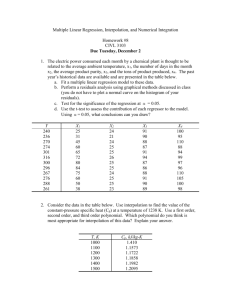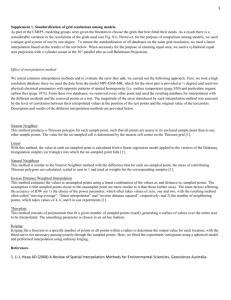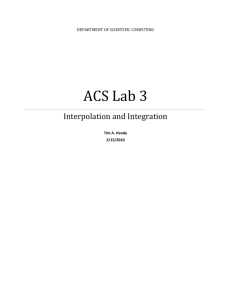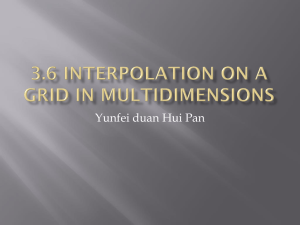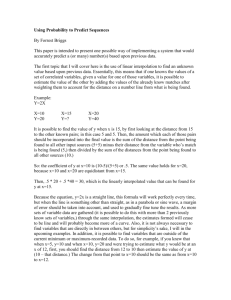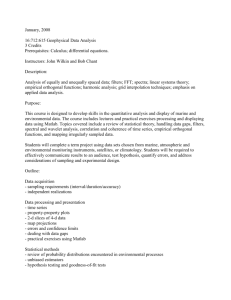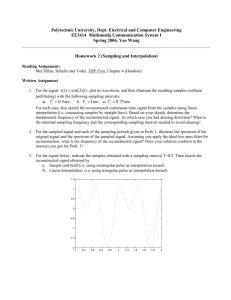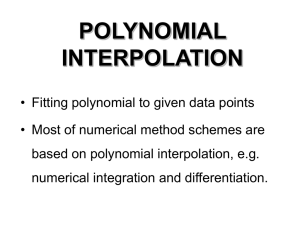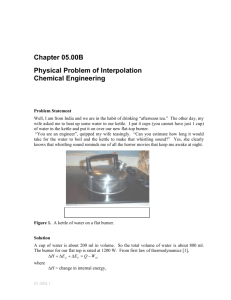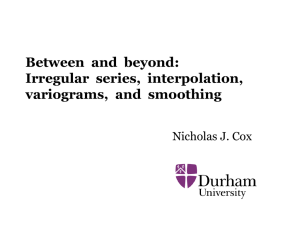Curves.
advertisement
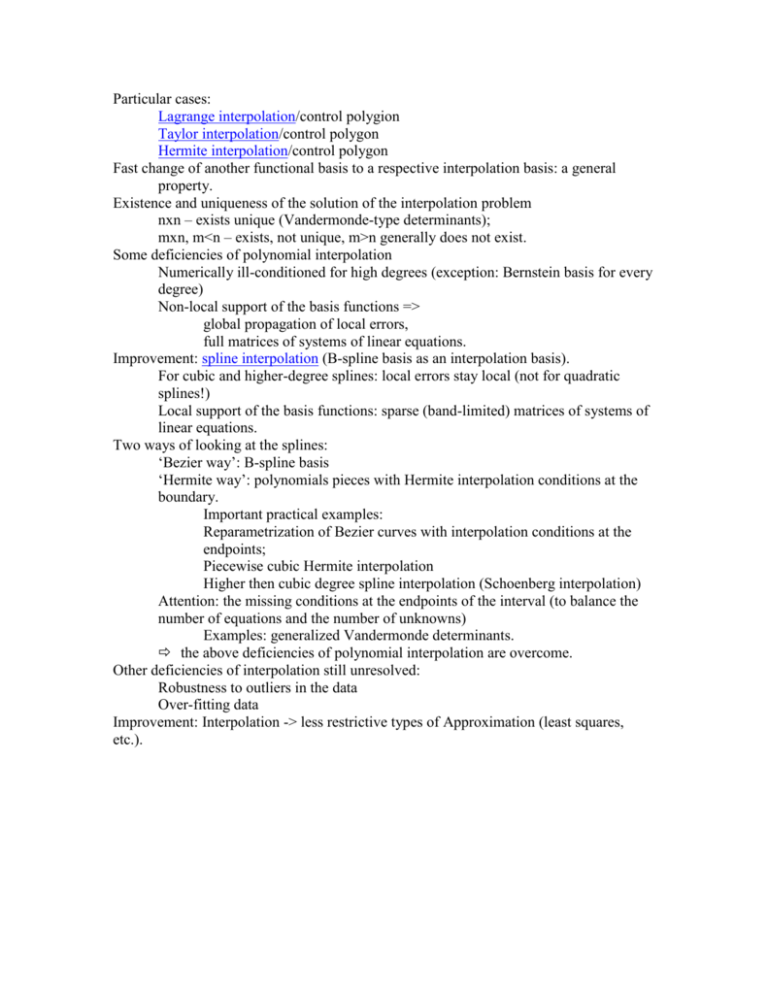
Particular cases: Lagrange interpolation/control polygion Taylor interpolation/control polygon Hermite interpolation/control polygon Fast change of another functional basis to a respective interpolation basis: a general property. Existence and uniqueness of the solution of the interpolation problem nxn – exists unique (Vandermonde-type determinants); mxn, m<n – exists, not unique, m>n generally does not exist. Some deficiencies of polynomial interpolation Numerically ill-conditioned for high degrees (exception: Bernstein basis for every degree) Non-local support of the basis functions => global propagation of local errors, full matrices of systems of linear equations. Improvement: spline interpolation (B-spline basis as an interpolation basis). For cubic and higher-degree splines: local errors stay local (not for quadratic splines!) Local support of the basis functions: sparse (band-limited) matrices of systems of linear equations. Two ways of looking at the splines: ‘Bezier way’: B-spline basis ‘Hermite way’: polynomials pieces with Hermite interpolation conditions at the boundary. Important practical examples: Reparametrization of Bezier curves with interpolation conditions at the endpoints; Piecewise cubic Hermite interpolation Higher then cubic degree spline interpolation (Schoenberg interpolation) Attention: the missing conditions at the endpoints of the interval (to balance the number of equations and the number of unknowns) Examples: generalized Vandermonde determinants. the above deficiencies of polynomial interpolation are overcome. Other deficiencies of interpolation still unresolved: Robustness to outliers in the data Over-fitting data Improvement: Interpolation -> less restrictive types of Approximation (least squares, etc.).
